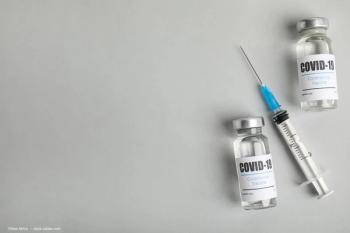
ACP: Employers, others can require proof of vaccination
The organization’s policies come amid federal mandates designed to spur Americans who are not vaccinated against COVID-19 to get a shot.
The American College of Physicians (ACP) this week rolled out new policies that support the promotion of vaccines in the interest of public safety and health, saying that the government may appropriately require employers, schools, public agencies, and organizations receiving federal funding to require employees or students show proof of vaccination with recommended immunizations against highly transmissible diseases during a public health emergency.
The ACP maintains in its statement that employers and schools may appropriately require proof of vaccination for recommended immunizations for highly transmissible diseases, this would include COVID-19 vaccines while the nation is dealing with public health emergency due to the COVID-19 pandemic.
Last week, President Joe Biden announced new mandates designed to spur Americans who are not vaccinated against COVID-19 to get a shot.
The measures apply to more than 100 million workers. However, it is not known how many of those may already be vaccinated.
Biden laid out a six-point plan that included a requirement for all federal employees to be vaccinated — with no testing alternative — and for private sector companies with more than 100 employees to ensure their workers are either vaccinated or tested weekly.
The Department of Health and Human Services' Centers for Medicare and Medicaid Services (CMS) also will issue a rule that requires vaccinations for workers in most healthcare facilities that receive Medicare or Medicaid reimbursement.
That policy could be issued by the beginning of October, according to CMS.
Moreover, the ACP maintains that any requirements imposed by employers and schools should be complemented by offering support through education, outreach, and paid time off for vaccinations and to deal with short term side-effects.
This support is particularly important to offer to historically marginalized populations who are subject to racism and discrimination.
ACP further states that while those who have clear medical contraindications should be exempt from requirements, that allowing exemptions based on non-medical reasons poses a risk to public health.
“Vaccines are safe and effective, they help prevent serious illness, hospitalizations and death. Increasing the vaccination rate for COVID-19 is foundational in helping to bring infection rates under control and to keep them under control,” George M. Abraham, MD, MPH, FACP, FIDSA, president, ACP, said in a statement. “We need to ensure that as many members of our society are vaccinated as possible to protect the most vulnerable among us.”
ACP also recommends that all health care workers should be immunized, as recommended by the Advisory Committee on Immunization Practices of the Centers for Disease Control and Prevention, for the safety of patients and the public unless there is a clear medical contraindication or other exemption under applicable law.
ACP supports employers who require that all health care workers to be vaccinated against highly transmissible diseases as a condition of employment. ACP has previously supported requirements for COVID-19 vaccines for health care workers.
The ACP also addressed issues of mistrust of healthcare institutions by some segments of the population, including marginalized populations subject to discrimination and racism, many of whom work in health care.
As a result, the organization recommends that employers and health care professional societies and organizations commit to ongoing engagement, outreach, education, and provision of resources to all including historically marginalized groups to support informed vaccination decision making.
Abraham pointed out that health care workers have an obligation to protect the health and well-being of their patients, getting recommended immunizations, including the COVID-19 vaccine, is key that protection.
“Throughout the pandemic, physicians and other health care workers have repeatedly demonstrated their dedication to caring for the patients who need them, vaccination is a critical part of caring for patients, their families and loved ones,” he said in a statement.
Abraham also noted that immunizations are essential in the fight against COVID-19 and other communicable diseases.
“Because they are so vital to our ability to mitigate diseases that threaten the public health we need to employ as many different means of encouraging individuals to get vaccinated as possible,” he concluded.
The ACP also is urging physicians, other health care professionals and patients to get vaccinated against COVID-19.
The organization also urges the continued use of masks as part of a comprehensive public health strategy to help reduce the spread of COVID-19 and slow infection rates.
Newsletter
Don’t miss out—get Ophthalmology Times updates on the latest clinical advancements and expert interviews, straight to your inbox.





























